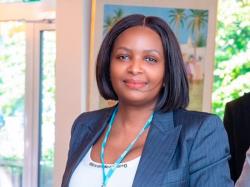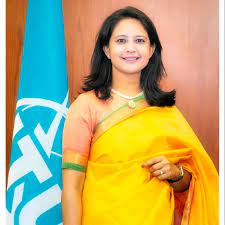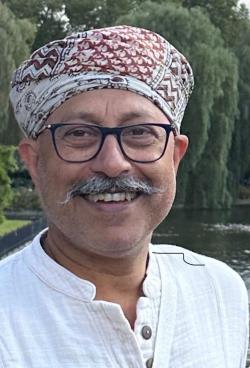20 Years of implementation of WSIS and the vision beyond 2025 (11:30 - 12:00 Saudi Arabia Local Time, Room 10)
South Africa, ITU
Session 107
Wednesday, 18 December 2024
09:30–11:00 (UTC+01:00)
Physical (on-site) and Virtual (remote) participation
King Abdulaziz International Conference Center (KAICC), Riyadh, Kingdom of Saudi Arabia
Internet Governance Forum
Interactive Session
This session will take place during the Internet Governance Forum (IGF) 2024 in Riyadh, Saudi Arabia at 11:30 to 13:00 (UTC+3). Venue: Workshop Room 10, King Abdulaziz International Conference Center (KAICC)
This session, organized by the Government of South Africa as Chair of the ITU Council Working Group on WSIS&SDG and ITU, invites stakeholders to contribute to the Call for Inputs on the WSIS+20 Review, by sharing their views on the work of the ITU in the WSIS+20 review. Participants will explore key topics, including achievements and challenges since the Geneva Plan of Action, the alignment of the WSIS Process with the 2030 Agenda, and the future direction of WSIS beyond 2025. The session will highlight ITU's significant contributions over the past two decades and emphasize the importance of diverse stakeholder engagement to ensure a comprehensive and inclusive review of the WSIS Process and the vision of WSIS beyond 2025.
Panellists

Ms. Cynthia Lesufi
Chair of ITU Council Working Group on WSIS&SDG
South Africa
Moderator

Ms. Gitanjali Sah
Strategy and Policy Coordinator
International Telecommunication Union (ITU)

Ms. Mina Seonmin Jun
Vice-Chair of ITU Council Working Group on WSIS&SDG
South Korea

Ms. Renata Santoyo
Telecommunication Regulation Expert – International Affairs
ANATEL, Brazil

Mr. Thomas Schneider
Ambassador and Director of International Affairs
Office Fédéral de la Communication (OFCOM), Switzerland

Mr. Ian Sheldon
Director, Internet Governance
Department of Infrastructure, Transport, Regional Development, Communications and the Arts, AUSTRALIA

Mr. Paul Blaker
Head of ITU and Internet Governance
Department for Science, Innovation & Technology, United Kingdom

Ms. Maria Fernanda Garza
Chair
International Chamber of Commerce (ICC)

Mr. Osama Manzar
Founder-Director
Digital Empowerment Foundation
WSIS Action Lines
-
 C1. The role of governments and all stakeholders in the promotion of ICTs for development
C1. The role of governments and all stakeholders in the promotion of ICTs for development
-
 C2. Information and communication infrastructure
C2. Information and communication infrastructure
-
 C3. Access to information and knowledge
C3. Access to information and knowledge
-
 C4. Capacity building
C4. Capacity building
-
 C5. Building confidence and security in use of ICTs
C5. Building confidence and security in use of ICTs
-
 C6. Enabling environment
C6. Enabling environment
-
 C7. ICT applications: benefits in all aspects of life — E-government
C7. ICT applications: benefits in all aspects of life — E-government
-
 C7. ICT applications: benefits in all aspects of life — E-business
C7. ICT applications: benefits in all aspects of life — E-business
-
 C7. ICT applications: benefits in all aspects of life — E-learning
C7. ICT applications: benefits in all aspects of life — E-learning
-
 C7. ICT applications: benefits in all aspects of life — E-health
C7. ICT applications: benefits in all aspects of life — E-health
-
 C7. ICT applications: benefits in all aspects of life — E-employment
C7. ICT applications: benefits in all aspects of life — E-employment
-
 C7. ICT applications: benefits in all aspects of life — E-environment
C7. ICT applications: benefits in all aspects of life — E-environment
-
 C7. ICT applications: benefits in all aspects of life — E-agriculture
C7. ICT applications: benefits in all aspects of life — E-agriculture
-
 C7. ICT applications: benefits in all aspects of life — E-science
C7. ICT applications: benefits in all aspects of life — E-science
-
 C8. Cultural diversity and identity, linguistic diversity and local content
C8. Cultural diversity and identity, linguistic diversity and local content
-
 C9. Media
C9. Media
-
 C10. Ethical dimensions of the Information Society
C10. Ethical dimensions of the Information Society
-
 C11. International and regional cooperation
C11. International and regional cooperation
Sustainable Development Goals
-
 Goal 1: End poverty in all its forms everywhere
Goal 1: End poverty in all its forms everywhere
-
 Goal 2: End hunger, achieve food security and improved nutrition and promote sustainable agriculture
Goal 2: End hunger, achieve food security and improved nutrition and promote sustainable agriculture
-
 Goal 3: Ensure healthy lives and promote well-being for all
Goal 3: Ensure healthy lives and promote well-being for all
-
 Goal 4: Ensure inclusive and equitable quality education and promote lifelong learning opportunities for all
Goal 4: Ensure inclusive and equitable quality education and promote lifelong learning opportunities for all
-
 Goal 5: Achieve gender equality and empower all women and girls
Goal 5: Achieve gender equality and empower all women and girls
-
 Goal 6: Ensure access to water and sanitation for all
Goal 6: Ensure access to water and sanitation for all
-
 Goal 7: Ensure access to affordable, reliable, sustainable and modern energy for all
Goal 7: Ensure access to affordable, reliable, sustainable and modern energy for all
-
 Goal 8: Promote inclusive and sustainable economic growth, employment and decent work for all
Goal 8: Promote inclusive and sustainable economic growth, employment and decent work for all
-
 Goal 9: Build resilient infrastructure, promote sustainable industrialization and foster innovation
Goal 9: Build resilient infrastructure, promote sustainable industrialization and foster innovation
-
 Goal 10: Reduce inequality within and among countries
Goal 10: Reduce inequality within and among countries
-
 Goal 11: Make cities inclusive, safe, resilient and sustainable
Goal 11: Make cities inclusive, safe, resilient and sustainable
-
 Goal 12: Ensure sustainable consumption and production patterns
Goal 12: Ensure sustainable consumption and production patterns
-
 Goal 13: Take urgent action to combat climate change and its impacts
Goal 13: Take urgent action to combat climate change and its impacts
-
 Goal 14: Conserve and sustainably use the oceans, seas and marine resources
Goal 14: Conserve and sustainably use the oceans, seas and marine resources
-
 Goal 15: Sustainably manage forests, combat desertification, halt and reverse land degradation, halt biodiversity loss
Goal 15: Sustainably manage forests, combat desertification, halt and reverse land degradation, halt biodiversity loss
-
 Goal 16: Promote just, peaceful and inclusive societies
Goal 16: Promote just, peaceful and inclusive societies
-
 Goal 17: Revitalize the global partnership for sustainable development
Goal 17: Revitalize the global partnership for sustainable development